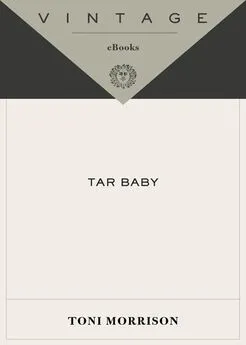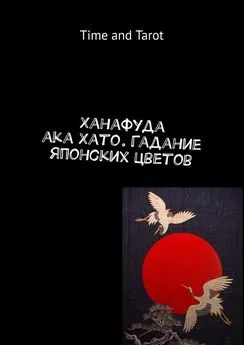Toni Morrison - Tar Baby
- Название:Tar Baby
- Автор:
- Жанр:
- Издательство:неизвестно
- Год:неизвестен
- ISBN:нет данных
- Рейтинг:
- Избранное:Добавить в избранное
-
Отзывы:
-
Ваша оценка:
Toni Morrison - Tar Baby краткое содержание
Tar Baby - читать онлайн бесплатно полную версию (весь текст целиком)
Интервал:
Закладка:
“Did they trouble you—the things he said that summer?”
“For a while.”
“You knew better?”
“I knew the life I was leaving. It wasn’t like what he thought: all grits and natural grace. But he did make me want to apologize for what I was doing, what I felt. For liking ‘Ave Maria’ better than gospel music, I suppose.”
Nothing on Sydney’s face showed his disappointment that the soufflé had not been completely eaten up by either one of them. He collected the dishes with his look of alert serenity, and stepped through the hair of the maiden aunts with an easy silent tread. He was perfect at those dinners when his niece sat down with his employers, as perfect as he was when he served Mr. Street’s friends. The silver tray of walnuts, the equally silver bowl of peaches he brought in, and a jiffy later, the coffee—all were exactly and surreptitiously placed on the table. One hardly knew if he left the room or stood in some shadowy corner of it.
Jadine leaned her cheek on her fist. “Picasso is better than an Itumba mask. The fact that he was intrigued by them is proof of his genius, not the mask-makers’. I wish it weren’t so, but…” She gave a tiny shrug. Little matches of embarrassment burned even now in her face as she thought of all those black art shows mounted two or three times a year in the States. The junior high school sculpture, the illustration-type painting. Eighty percent ludicrous and ten percent derivative to the point of mimicry. But the American Blacks were at least honestly awful; the black artists in Europe were a scandal. The only thing more pitiful than their talent was their pretensions. There was just one exception: a Stateside Black whose work towered over the weeds like a sequoia. But you could hardly find his stuff anywhere.
“You look sad,” said Valerian. “He must really have made you suffer. You should have mentioned it to me. I wanted that summer to be an especially pleasant one for you.”
“It was. Actually it was good he made me think about myself that way, at that place. He might have convinced me if we’d had that talk on Morgan Street. But in Orange County on a hundred and twenty acres of green velvet?” She laughed softly. “Can you believe it? He wanted us to go back to Morgan Street and be thrilling.”
“Us? He was going with you?”
“Just to get us started. He meant us Blacks: Sydney, Ondine and me.”
“Sydney? A potter?” Valerian turned his gaze toward his butler and laughed.
Jadine smiled but did not look at her uncle.
“You can see how much he knows about Sydney. And I haven’t given you one-thousandth of what I gave him, of what I made available to him. And you have fifty times the sense he does, I don’t mind telling you.” Valerian’s sentences changed tempo. They were slower, and it was taking him longer to blink his eyes. “Margaret did that. She made him think poetry was incompatible with property. She made a perpetual loser of one of the most beautiful, the brightest boy in the land.” He held his forehead for a moment. To Jadine he seemed terribly close to tears and she was relieved when he merely repeated himself. “The most beautiful, the brightest boy in the land.”
“He didn’t turn out the way you wanted?”
“No.”
“You want him to be something else?”
“I want him to be something at all.”
“Maybe he is.”
“Yes. An adolescent. A kitten. But not playful. Complaining. A complaining kitten. Always mewing. Meow. Meow. Meow.”
“You shouldn’t hate him, though. He’s your son.”
Valerian took his hand from his forehead and stared deep into the peaches nestled in their silver bowl. “I don’t hate him. I love him. Margaret thinks I don’t. But I do. I think about him all the time. You know…this isn’t going to sound right…but I never was convinced that she did. Perhaps she did. In her way. I don’t know. But she wasn’t ready for him. She just wasn’t ready. Now, now she’s ready. When it’s over. Now she wants to bake him cookies. See him off to school. Tie his shoelaces. Take care of him. Now. Absurd. I don’t believe it. I don’t believe her. When he was just a little thing I came home one day and went into the bathroom. I was standing there and I heard this humming—singing—coming from somewhere in the room. I looked around and then I found it. In the cabinet. Under the sink. He was crouched in there singing. That was the first time, but not the last. Every now and then I’d come home, he’d be under the sink. Humming to himself. When I’d pull him out, ask him what he was doing there, he’d say he liked the soft. He was two, I think, two years old, looking in the dark for something—soft. Now imagine how many soft, cuddly things he had in his room. Bunny rabbits, slippers, panda bears. I used to try to be it for him, but I wasn’t there during the day. She was though. I sometimes had the feeling that she didn’t talk to him very much, then it would go away. The feeling, I mean. She’d change, she’d get interested in him, read to him, take him to shows, parks. Months would pass. Then I’d come home and he’d be under the sink again, humming that little, I can’t tell you how lonely, lonely song. I wasn’t imagining it; it was lonely. Well, he got older and she’d go hot and cold, in and out. But he seemed to miss her so, need her so that when she was attentive he was like a slave to her. Then she’d lose interest again. When he was twelve he went to boarding school and things were better. Until he came to visit. She would do things—odd things—to get his attention and keep it. Anything to keep his eyes on her. She’d make up things, threats to herself, attacks, insults—anything to see him fly into a rage and show how willing he was to defend her. I watched, and tried to play it down or prove, prove she was making it up. I always checked, it was always nothing. All I ended up doing was making him angry with me. I thought another child—but she said no. Absolutely refused. I have until this day never understood that. When he left for college I was relieved. It was already too late, but I still hoped he’d get out from under her. In a way he has, I suppose. Never visits, seldom writes. Calls sometimes. Complains. About Indians. About water. About chemicals. Meow. Meow. Meow. But he is on his own, I guess. On his own. But now—” Valerian turned to Jadine and stared right at her chin. “Now she wants to get hold of him again. Tempting him with some fake poet. And she wants to go back with him, live near him. For a while she says. Know what that means? A ‘while’? It means as soon as he trusts her again, needs her again, counts on her, she’ll change her mind, leave him. I haven’t seen him for three years, and the last couple of times I didn’t like him, or even know him. But I loved him. Just like I loved the boy under the sink, humming. That beautiful boy. With a smile like…like Sunday.”
The maiden aunts, huddled in the corners of the room, were smiling in their sleep. Jadine flared her nostrils in an effort not to yawn. Another cup of coffee, another glass of port—nothing could bring her alive to the memories of an old man. I ought to be saying something, she thought. I ought to be asking questions and making comments instead of smiling and nodding like a puppet. Hoping there was a residue of interest in her eyes, she held her chin toward him and continued to smile—but only a little—in case what he was remembering was poignant but not happy. Long ago she had given up trying to be deft or profound or anything in the company of people she was not interested in, who didn’t thrill her. Gazing at her stem of crystal she knew that whatever he was saying, her response was going to miss the point entirely. Her mind was in automatic park. She played with the little bit of port, gently swirling it around the well of her glass. “Sunday,” he was saying with the bell-full voice of ownership like “in the land” or “the whole of London” or “ tout Paris.” He had a smile like Sunday. His Sunday. She wondered what Sunday was to this tall, thin man with eyes like the gloaming. Light? Warmth? A drawing room full of flowers? He was pouring himself a fifth glass of wine, too morose, too preoccupied with Sundays to think of offering her more. The peaches and walnuts were quiet in their silver bowls. She took a cigarette from a crystal cigarette holder. Next to it lay a round matchbox patterned like an Indian carpet. Inside were tiny white matchsticks with speckled gold heads that exploded with a hiss when struck. Three months, no two, and the quiet to which the house succumbed at night still disturbed her. Sunset, three minutes of Titian blue, and deep night. And with it a solid earthbound silence. No crickets, no frogs, no mosquitoes up here. Only the sounds, heard or imagined, that humans made. The hiss of a gold-headed match; the short cascade of wine into a goblet; the faint, very faint, click and clatter of the kitchen being tidied, and now a scream so loud and full of terror it woke the maiden aunts from their sleep in the corners of the room. And when they saw those blue-if-it’s-a-boy blue eyes gone white with fear, they fled, pulling their maiden hair behind them.
She stood in the doorway screaming, first at Valerian and then at Jadine, who rushed to her side.
“What? What? What is it?”
But she would not stop. She just balled her beautiful hands into fists and pummeled her own temples, screaming louder. Valerian stared through port-softened eyes at his wife as though he, not she, were in pain.
“What is it, Margaret?” Jadine put her arm around her shoulders. Sydney and Ondine both burst through the other door.
“What’s the matter?”
“I don’t know.”
“She hurt herself?”
“I don’t know. ”
“Hold her hands or she will.”
“What is it? What happened?”
Then Ondine, fed up, shouted, “Speak, woman!” and Margaret sank to her knees gasping for the breath with which to whisper the words: “In my closet. In my closet.”
“Her what?”
“Her closet. Something’s in her closet.”
“What’s in your closet?”
“Black,” she whispered, her eyes shut tight.
Jadine dropped to her knees and leaned close to Margaret’s face. “You mean it’s dark in your closet?”
Margaret shook her head and put the back of her fist in her mouth.
Then Valerian spoke for the first time since she had come screaming into the room. “Margaret, this is not the Met. It’s a simple house on a simple island. Michael’s not even here yet…”
But she was screaming again and Jadine had to shout, “Tell me! Tell me!”
“In my things!” said Margaret. “In all my things!”
“What’s she saying?”
“Go look in her closet.”
“Take the gun, Sydney.” Ondine was the ranking officer, barking instructions.
“Right!” he answered, and ran back through the door to the kitchen.
“And be careful!” Ondine shouted after him.
“Hadn’t I better call the harbor, Valerian?” asked Jadine.
“Don’t leave me!” shrieked Margaret.
“All right. All right. Nanadine, give her some of that wine.”
“Maybe she’s had enough of that.”
“No. She drank hardly anything.”
“I heard her slam up the stairs in the middle of my dinner,” said Ondine. “Between then and now she could have killed a quart.” Ondine spoke without moving her lips hoping it was enough to keep Valerian from hearing.
“He’s in my things, Jade.” Margaret was crying softly.
“Okay, okay.”
“You have to believe me.”
Читать дальшеИнтервал:
Закладка:









